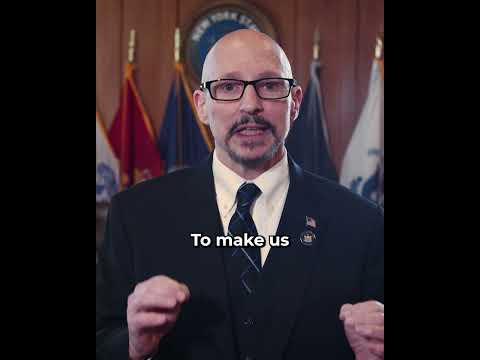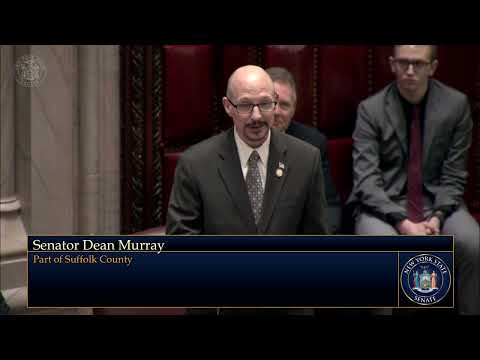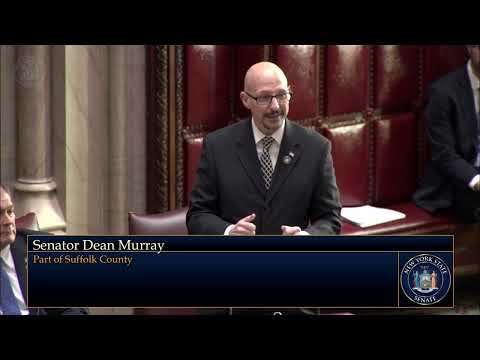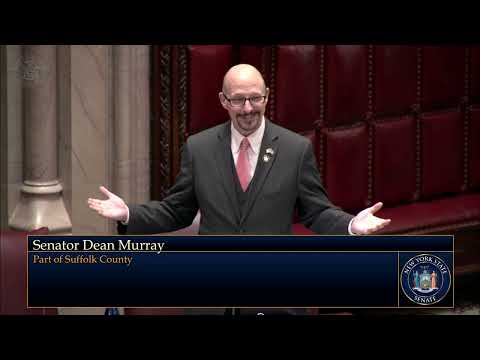
Public School Instructional Materials Review and Transparency Act
November 21, 2023
(Patchogue, NY) - NYS Senator Dean Murray, 3rd District, has introduced legislation entitled the “Public School Instructional Materials Review and Transparency Act” to ensure that parents/guardians have a voice in what materials are being made available to their children in schools.
“Parents have every right to know what materials are being made available to their children in schools and also have every right to question whether certain materials are appropriate,” said NY State Senator Dean Murray. “With that said, while the parents certainly should be allowed to express their concerns, and those concerns should be considered, the final decision should rest with the body that is charged with making such decisions, the duly elected school board,” added Murray.
School districts currently have processes in place that vary from district to district on how to handle “challenged material” (instructional materials including textbooks, library books or other learning aids for which a complaint has been made regarding its use in the school setting).
Currently, state statute does not prescribe how these complaints should be handled. Parents/guardians may make complaints regarding a challenged material, but what happens following the complaint is left up to an arbitrary and ambiguous process that may be based on a local school board policy governing the review process.
The NYSED Commissioner’s regulations on this issue simply instruct schools to set up a process but do not provide guidance on what it should look like. This bill ensures that there is uniformity across the state in how these cases are handled. It ensures that parents have knowledge of all materials available to their children in schools, ensures there is transparency in the review committee process, gives an opportunity for public input, and ensures that school board members have the final decision on whether to keep, modify access to, or discontinue use of a challenged material.
While there may be attempts to label this legislation as a book banning bill, that simply is not the case. Below is a breakdown of what this bill DOES and DOES NOT do:
WHAT THE BILL DOES DO:
IT DOES provide a uniform process for all schools in the state to follow when a formal complaint is filed by a parents/guardians asking the district to review an instructional material (i.e. “challenged material”) for appropriateness in the school setting.
IT DOES ensure that any and all input from all parents/guardians and other district residents who wish their concerns to be considered is accepted and examined by the review committee.
IT DOES ensure that the review process for challenged materials includes (but is not limited to) stakeholders from within the school district.
IT DOES ensure that formal complaints on instructional materials “challenged materials” are fully reviewed.
IT DOES provide transparency to parents/guardians by allowing them access to the source citation database of all instructional materials in use within the school district.
IT DOES provide a funding mechanism to support maintenance of the database of instructional materials.
IT DOES establish timelines that review committees must comply within to complete their review and within which school boards must take action on the recommendations of the review committee.
IT DOES require public notification by school boards that the matter will be taken up at an upcoming school board meeting and that residents and parents/guardians of students in the school district will have an opportunity to provide public comments at the school board meeting.
IT DOES establish accountability in the public education system by requiring a public vote by school board members on the challenged material.
WHAT THE BILL DOES NOT DO:
DOES NOT ban books.
DOES NOT take away a school board’s ultimate power to decide which instructional materials to use.
DOES NOT put parents/guardians in charge of choosing instructional materials.
DOES NOT require a review committee to examine each and every complaint in a public process because informal complaints may still be resolved at lower school district staff levels.
DOES NOT require any parent(s) to serve on the review committee.
DOES NOT place unfunded mandates on the school districts.
###
Share this Article or Press Release
Newsroom
Go to Newsroom


